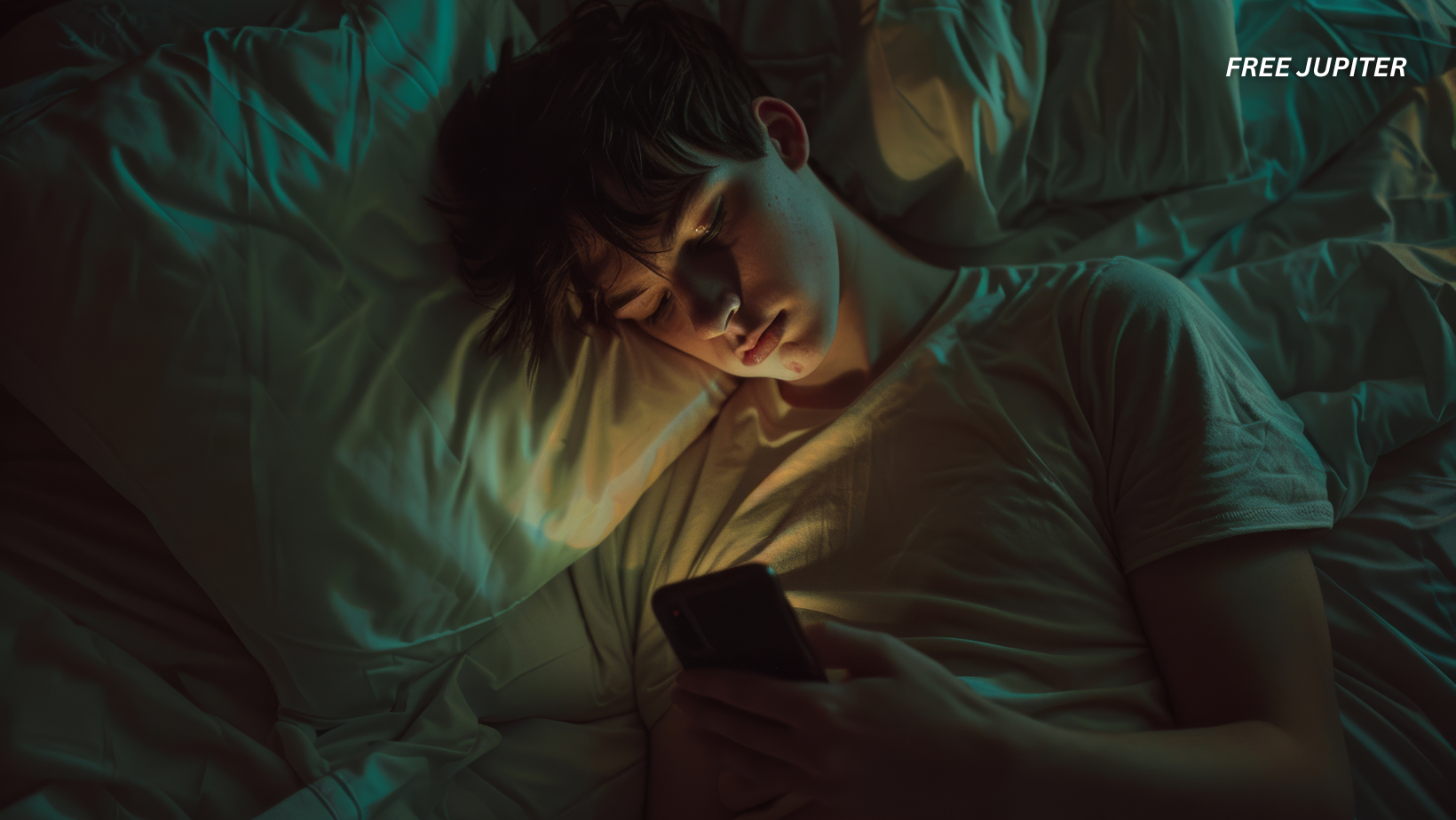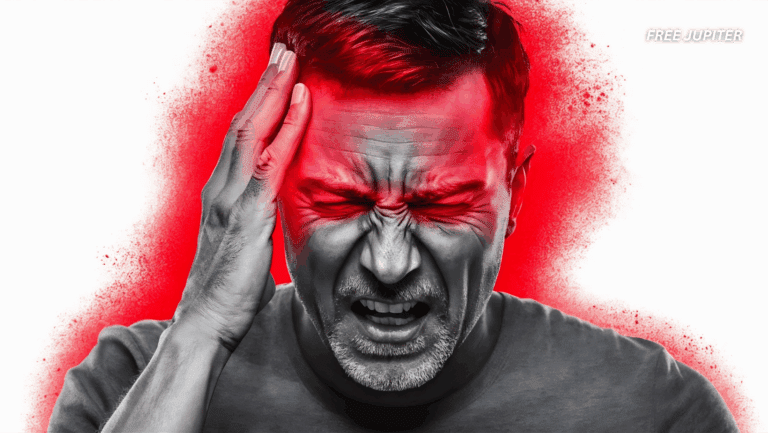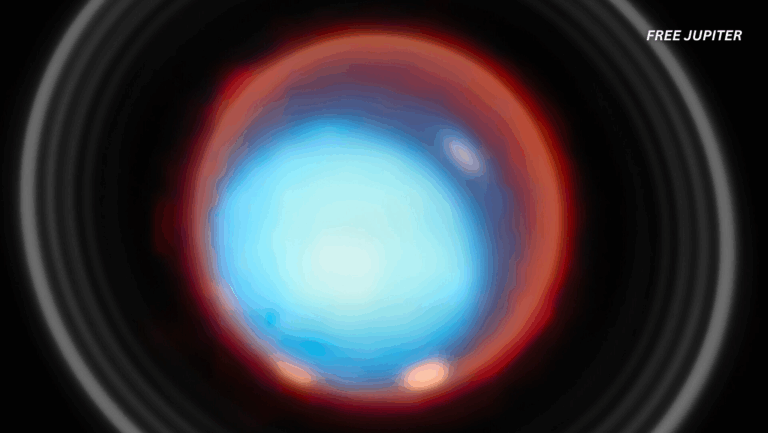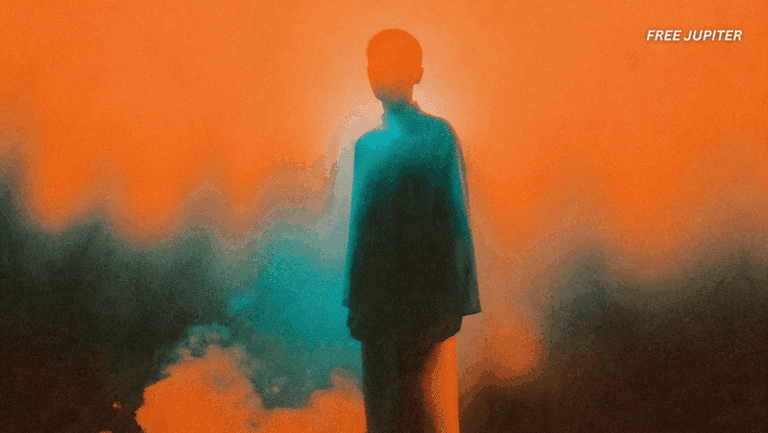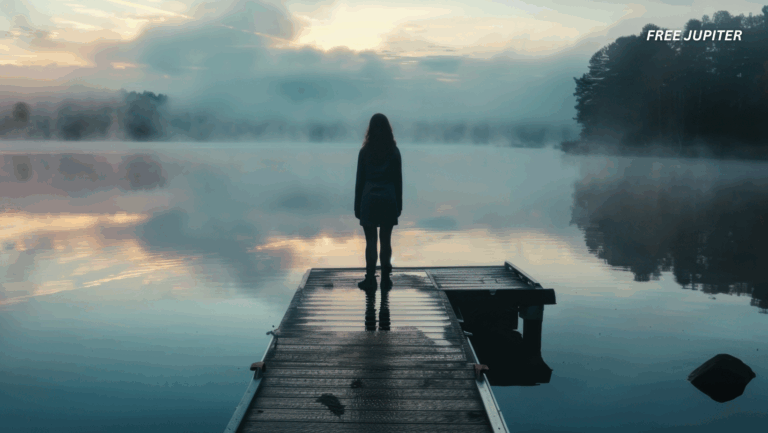When the clock strikes midnight and the world grows quiet, something curious happens inside the human brain. Thoughts tend to turn darker, cravings intensify, and that one small worry can suddenly feel like the end of the world. Whether it’s the urge for a midnight snack, a cigarette, or a deep spiral of overthinking, many of us know the strange pull of the late-night mind.
But according to scientists, there’s more to this than mood swings or insomnia. Research suggests that our brains simply don’t operate the same way after midnight—and staying awake too long can make us more emotional, impulsive, and vulnerable to risky behavior.
The “Mind After Midnight” Theory
A group of researchers from Harvard and the University of Arizona explored this idea in a 2022 paper. They called it the “Mind After Midnight” hypothesis, and it proposes that humans are wired to follow a natural 24-hour rhythm—our circadian rhythm—that governs not just sleep, but emotions, motivation, and decision-making.
During the day, our brain chemistry supports alertness and rational thinking. Hormones and neurotransmitters, like serotonin and dopamine, are balanced in a way that helps us stay productive and positive. But once night falls, that balance shifts. The brain begins to prepare for rest, and systems that regulate mood and behavior change their tune.
Evolution may be partly to blame. Early humans were daytime creatures—hunters and gatherers by day, and vulnerable sleepers by night. Being overly alert to danger in the dark was once a survival mechanism. Now, though, that same nighttime sensitivity may be working against us.
Read more: What Happens After 30 Days of Using the Military’s 2-Minute Sleep Hack – Shocking Results
Why Our Thoughts Turn Negative at Night
The researchers explain that our brains tend to pay more attention to negative emotions after midnight. This heightened alertness to “bad news” or potential threats could have helped ancient humans detect predators or other dangers in the dark.
Today, though, the same mental shift might lead to anxiety, sadness, or impulsivity. Late at night, people may find themselves dwelling on regrets or catastrophizing small problems. The reward system in the brain—which influences risk-taking—also behaves differently, making dangerous ideas seem more appealing.
For instance, the desire to eat junk food, scroll endlessly through social media, or engage in self-destructive habits can feel harder to resist. Add sleep deprivation to the mix, and judgment drops even further.
When the Night Feeds Dangerous Impulses
Dr. Elizabeth Klerman, a neurologist at Harvard Medical School and one of the study’s co-authors, emphasizes how concerning this can be.
“There are millions of people who are awake in the middle of the night, and there’s fairly good evidence that their brain is not functioning as well as it does during the day,” she said.
The team used two examples to illustrate this pattern.
- The first is a person recovering from heroin addiction who can resist cravings during the day but relapses under the cover of night.
- The second is a college student with insomnia who begins to feel hopeless and alone after many sleepless nights.
Both examples reveal how nighttime wakefulness can amplify emotional pain or weaken self-control—sometimes with tragic results.
The Link Between Nighttime Wakefulness and Suicide Risk
Studies show that self-harm and suicide attempts are far more likely to occur between midnight and 6 a.m. One study found that the risk during these hours is about three times higher than during the rest of the day.
The 2022 researchers believe this may happen because the brain’s circadian rhythm becomes misaligned during late-night wakefulness. When the mind is out of sync with the body’s natural cycle, thoughts can grow distorted and hopelessness can feel overwhelming.
“Suicide, previously inconceivable, emerges as an escape from loneliness and pain,” the researchers wrote. “And before the costs of suicide are considered, the person has the means and is prepared to act—at a time when no one is awake to stop them.”
This chilling observation highlights why nighttime isolation can be so dangerous for people struggling with depression or addiction.
Read more: If You’re Always Still Exhausted After 8 Hours of Sleep, Your Body Is Trying To Tell You This
Why Risky Behavior Peaks at Night
The same principle extends to substance use. A 2020 study from Brazil found that opioid overdoses were nearly five times more likely to occur at night compared to daytime hours.
The quiet of the night can create both psychological and physical vulnerability. There’s less social support, fewer distractions, and often, more fatigue—all of which can make risky decisions seem oddly reasonable.
While some of these behaviors might be explained by simple factors like fatigue or darkness providing a sense of privacy, researchers believe something deeper is at play—fundamental neurological changes that occur after dark.
What About Shift Workers?
If our brains aren’t designed to stay awake at night, what does that mean for people who have to—like doctors, nurses, pilots, or overnight security staff?
Surprisingly, there’s still no clear answer. The researchers point out that no comprehensive studies have yet examined how being awake during the body’s “biological night” affects decision-making or emotional regulation.
Shift workers often face chronic sleep disruption, which can impact mood, reaction times, and even metabolism. Over time, this mismatch between natural circadian rhythms and work schedules could affect both mental and physical health.
Dr. Klerman and her colleagues argue that understanding how the “night mind” works is not just interesting—it’s essential for public health and safety.
Read more: Psychology Says People Who Sleep Under A Blanket When Its Hot Outside Share These Habits
The Great Unknown Hours
For all our scientific progress, there’s still a mysterious gap in our understanding of what happens in the human brain after midnight. Those hours between dusk and dawn—when the rest of the world sleeps—remain a kind of mental frontier.
We know that sleep restores and regulates our systems. But what about those who can’t or don’t sleep? For the insomniacs, night-shift workers, new parents, and restless thinkers of the world, those quiet hours can be a strange and sometimes treacherous mental space.
The “Mind After Midnight” hypothesis doesn’t suggest we all turn into different people when the sun sets—but it does hint that our minds become more fragile, reactive, and emotionally raw.
Until scientists uncover more, the takeaway is simple yet profound: when it’s late, and your thoughts start to turn dark or impulsive, remember—it’s not just you. It’s biology.
Featured image: Freepik.
Friendly Note: FreeJupiter.com shares general information for curious minds. Please fact-check all claims and double-check health info with a qualified professional. 🌱

